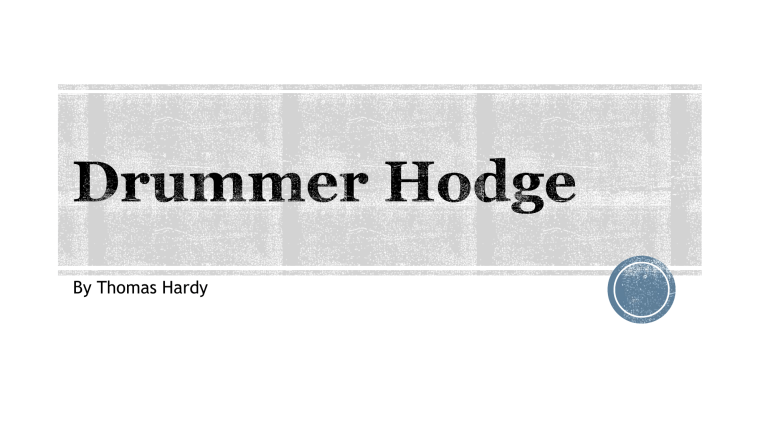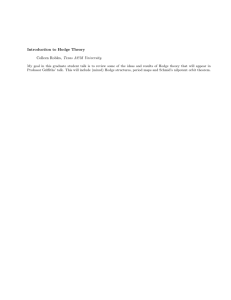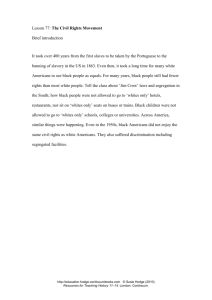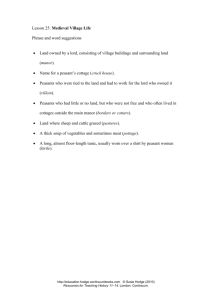
By Thomas Hardy Drums symbolise the SIGNAL INSTRUMENT for COMMUNICATION and CONDUCTING the WAR. In the battle, Captain or Colonel’s voice would not be heard, so the beat of the drum played a vital role in communicating orders to the troops. It was considered dishonourable knowingly to strike or wound a drummer in battle. Drummers were usually the YOUNGESTS of soldiers. Each beat used to have a specific meaning instantly recognisable to the soldiers The patriotic responsibility The pointlessness of the war The incompetence of those in power. Heroism was not important. BOY SOLDIERS Hodge is synonym of ‘agriculture labourer’ with poor wages. They are also called as ‘WORKFOLK’ The Hodge label was the result of'social ignorance and class isolation Hodge was an agricultural labourer of rural England in nineteenth century, 'unimaginative, ill-clothed, ill-educated, ill-paid, noncommunicative . Hodge symbolises the backwardness and lack of sophistication' They hardly dared to think at all, they have few thoughts of joy and little hope of rest Drummer boy = represents a naïve young boy becoming a man in dangerous circumstances. This young soldier travels from England to SA to fight in the Boer War. Young Hodge died in SA in the Boer War. Hardy frequently wrote about supernatural forces that control the universe. Three six-line stanzas. Strict iambic rhythm. Regular rhyme scheme: ababab This suggests restraint and creates a sombre, reflective poem that creates sympathy for the dead drummer boy. Regular beat/rhythm may be suggestive of dirge (funeral song). Enjambment emphasises words like: “uncoffined”; “strange”; “will”; “grow” and “His”. Despair Hopeless Bitter Witty Mournful L1: ‘they’ – identity not made clear (could be enemy or friend). ‘throw in’ - not lowered with dignity. None of the proper funeral traditions are carried out. ‘to rest’ – RIP Allusion: Hodge (Line 1-7) : Historical people who were ‘agriculture labourers’ with poor wages in South England in nineteenth century. L2: Uncoffined: not even in coffin. Nothing to mark the site of his burial. Just as found: no time to coffin him, like an object not human. His body hasn’t been properly laid out. Lack of mourning Alliteration of d (Line 1-2): drummer, uncoffined, found, around, mound. L3: Kopje- crest : a small hill implying he has just been buried the only landmark to show grave. Veldt: plain surface The soldier’s grave sticks out in the ‘veldt’ surrounding the burial place. Alliteration of T: to, rest, just, kopje-crest, that, veldt L5-6 - The ‘constellations’ (stars) are ‘foreign’ (strange) to him, as in the Northern Hemisphere the constellations are different to the Southern. A romantic picture to create the effect of lessening harshness of death. ‘mound’ = his little hill/ landmark Contradiction: that the boy seems to be unworthy (dumped in grave), yet he will forever be a vital part of the surroundings and will outlast the war. L:7-9: Broad Karoo: A dry region in South Africa The Bush: British Colonial word for an uncleared area of land. Fresh: This young (not in SA long) man never quite understood the conditions in SA Wessex home: The climate and the surroundings were difficult/different for him. During his life he could never learn about beauties of nature. Alliteration of O: Hodge, from, home, of, broad, Karoo, loam, • loam: soil • Strange stars = alliteration. • Gloam = twilight • Loam & gloam: Assonance He is immortalised as a part of an unknown plain, African plain. Even though he did not understand or identify with the South African landscape, his body will now always be part of it. L15: His homely Nothern breast and brain His body and mind will continue to represent him after his death. Brain: He was simple but a valuable human nonetheless. His Northern (hemisphere) body will decompose into the ground and into the soil. L16: He wıll be forever remembered ın the form of ‘some southern tree’ This different landscape becomes his permanent home and he becomes a part of nature. Nature welcomes Hodge in death. Nature treats him better than humans did In death he achieves a worthiness he never received in life. In this way, the Northern and Southern hemisphere are reconciled despite the war. And strange-eyed constellations reign. His stars eternally. A romantic picture to create the effect of lessening the tragedy of his death. His stars eternally: Immortalising him - ‘Drummer Hodge’ will continue to exist as a symbol of those who fought in the Boer war. Forever (‘eternally’) the strange and different constellations will now ‘reign’ (control) the new stars above his ‘hill’ (grave). strange-eyed constellations - Personification


